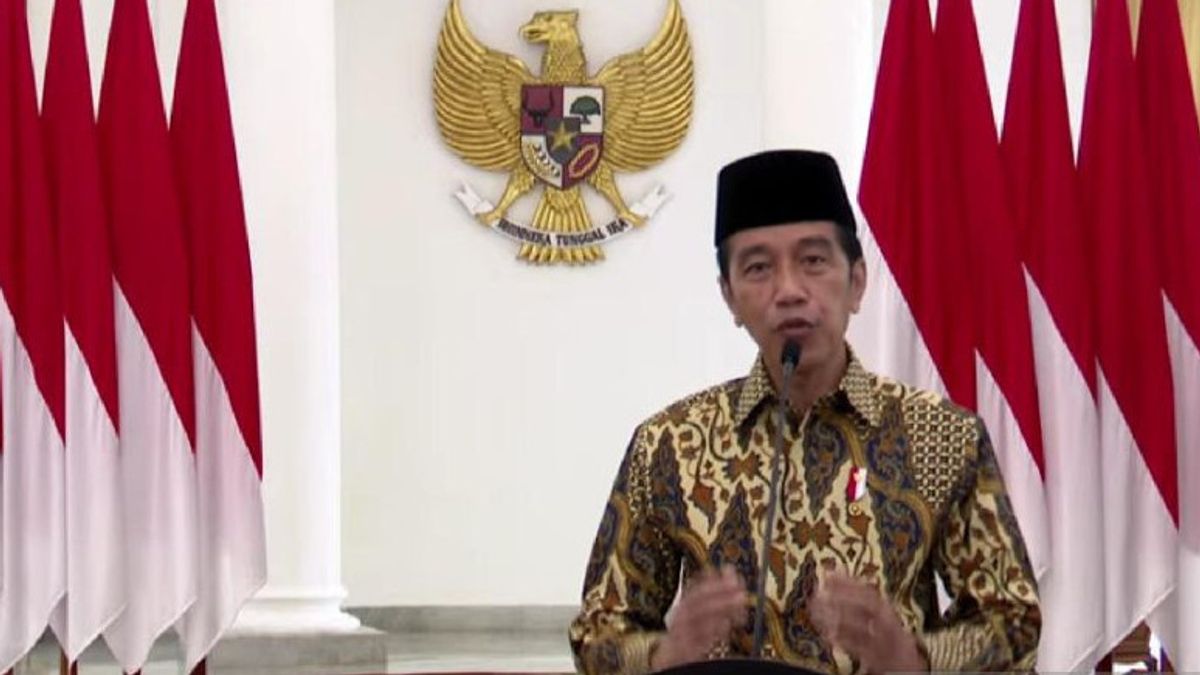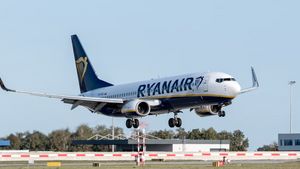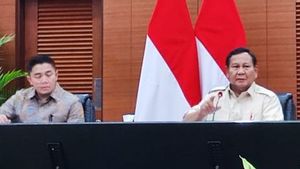JAKARTA - President Joko Widodo emphasized that the State Capital (IKN) program is not only moving government buildings but as a form of structural transformation.
"The National Capital Development Program in East Kalimantan is an important part of that transformation. The IKN program is not just moving government buildings, it's not that," said President Jokowi at the Bogor Presidential Palace, Saturday.
President Jokowi conveyed this while attending the inauguration of the Central Executive Council of the Indonesian Muslim Intellectuals Association (ICMI) 2021-2026 and the inauguration of the Opening of the ICMI National Working Meeting.
"Moving the capital city is changing the way of working, moving the 'mind set' based on a modern economy and building a more just and inclusive social life," added the president.
The government has since 2019 prepared a new State Capital (IKN) in the Sepaku area, bordering North Penajam Paser and Kutai Kartanegara districts, East Kalimantan.
"We will make IKN a 'show case' for transformation in the fields of the environment, working methods, economic base, technology and others, including in the fields of higher quality health and education services," said the president.
Other things that according to President Jokowi can be transformed from IKN are the creation of a more pluralistic and tolerant social order that upholds ethics and noble character.
"The IKN program and several major transformations require the support of all parties. We really need ICMI's contribution in this transformation, we really hope that together we can build the advanced Indonesia that we aspire to," added the president.
According to President Jokowi, the government is currently working hard to oversee several major transformations.
"We are carrying out a structural transformation so that Indonesia is more competitive to face today's hyper-competitive world," said the President.
According to President Jokowi, one example of structural transformation carried out by the government is the downstreaming of raw materials.
"Mining, oil and gas businesses must downstream domestically to provide great added value in our country, to create jobs, and at the same time save our foreign exchange," said the president.
The reason is because downstreaming provides large added value, for example nickel downstreaming which has been carried out since 2015 has contributed to exports and the trade balance. According to President Jokowi, iron ore exports in 2021 will reach US$20.9 billion or around Rp300 trillion, an increase from the previous US$1.1 billion in 2014 valued at Rp15 trillion to Rp300 trillion.
"I don't think it's the time anymore, since the VOC era we have always exported raw materials whose added value is enjoyed by other countries and we have proven that by downstreaming the added value in the country, it is very large," said the president.
Going forward, President Jokowi also emphasized that there would be a halt to other raw materials.
"This year we may stop bauxite again, next year we will stop copper, next year tin, stop gold again, there is no longer a name for raw material exports. In 2022, I think we can achieve nickel-specific exports of 28-30 billion US dollars, which means around Rp. 400 trillion, that's an estimate," said the president.
As is known, the 13th Plenary Meeting of the Indonesian House of Representatives for the Third Session of the 2021-2022 Session Year has also approved the ratification of the IKN Law on January 18, 2021.
The development and relocation of IKN is planned to be carried out in five stages, namely the first stage in 2022 to 2024 by prioritizing the availability of basic infrastructure, while stages two to five from 2025 to 2045.
The government estimates that the total budget requirement for IKN will reach Rp. 466 trillion, which will be met through the State Budget of Rp. 89.4 trillion, Rp. 253.4 trillion from government and business entity cooperation (KPBU) and Rp. 123.2 trillion from the private sector.
The name of the new IKN has also been decided to become Nusantara which is described as a conceptualization of the geographical area of Indonesia with the constituent islands united by the ocean.
The IKN government was agreed in the form of a Special Regional Government (Pemdasus), which is a regional government that has specificity and is at the provincial level whose territory is the seat of IKN.
The IKN Nusantara Special Regional Government, which is referred to as the IKN Authority, is at the ministry level and is tasked with preparing, developing, and transferring IKN as well as budget users or users of goods.
The English, Chinese, Japanese, Arabic, and French versions are automatically generated by the AI. So there may still be inaccuracies in translating, please always see Indonesian as our main language. (system supported by DigitalSiber.id)








